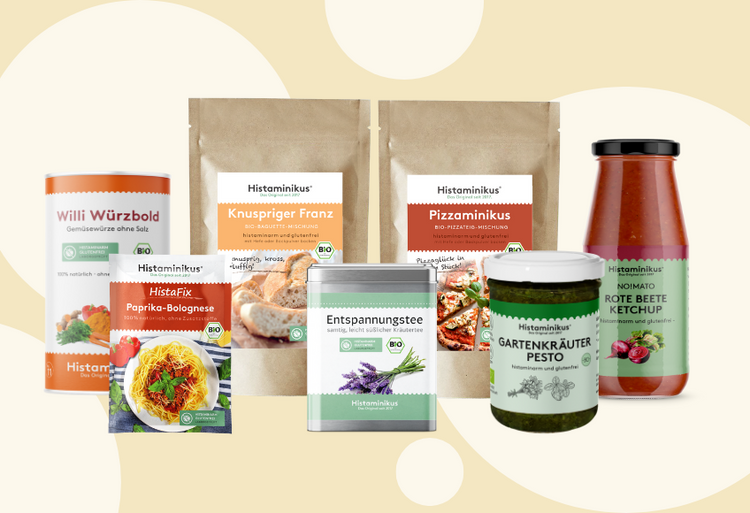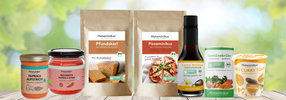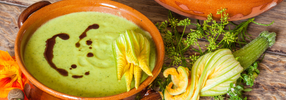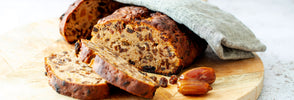
Facifying everyday cooking life with histamine intolerance
A guest contribution by Yvonne Brinkmann
The question of whether yeast is compatible with histamine intolerance or not is very controversial on the Internet. That is why we have researched and came across the baked goods specialist Resch & Frisch in Austria. Resch & Frisch GmbH dealt intensively with this topic and commissioned a diploma thesis at the HTL for food technology in Wels in 2012.
Tip 1: Say goodbye to false beliefs
Before I come to the specific and practically implementable tips, I have to send this very important tip ahead: Say goodbye to false, negative beliefs. This means sentences like "Cooking in advance" or "I must not eat warmed up" or "Cooking is a lot of effort and means stress" or "Eating will never have anything to do again for me".
With such or similar sentences in the head, you create a reality in which these sentences apply. Just like a self -fulfilling prophecy, you approach things with a certain attitude and then have exactly the experience that confirms your beliefs.
So turn up your beliefs and turn them into the positive, for example like this:
- "If I cleverly instead, I can cook in advance."
- "If I have prepared a low -histamine food and feel relaxed, then I can certainly try a warmed up food."
- „Kochen kann Spaß machen und entspannt sein, wenn ich gut plane.“
- "When I go to cook with fun and lightness, food can also be enjoyment for me."
As you can see from these sentences, you do not generalize the situations with such positive beliefs, but give them a concrete framework in which it is possible to also have the opposite experience.
Tip 2: Loosen yourself from lists and generalizations
In the early days after a diagnosis, compatibility lists are still a real blessing - but as soon as you have obtained a certain level of security, which foods contain histamine and which are not, you should remember that every histamine intolerance is individual. A list will never be able to tell you which foods are actually very personally tolerated for you.
Therefore: Don't be afraid to try food again in a relaxed and playful atmosphere that contain a little histamine - and keep trying it out, for example in an annual rhythm!
Your tolerance limits can change over time and you will also notice that in many cases it also depends on the situation and the atmosphere, your state of relaxation, how well you can tolerate something.
You should also break away from generalizations. Your doctor told you that you shouldn't warm up food? Try it out yourself! Unfortunately, doctors are often not trained in nutritional medicine (possibly recognizable by additional training as a nutritionist) and are therefore familiar with physical causes and diagnoses, but not with nutritional therapy. The best way to do this is to a dietician who you can find, for example, through your health insurance company (who also subsidizes such consultations). Histamine intolerance is so individual that flat -rate statements cannot be made. A dietician, in turn, can help you find exactly the nutrition that fits you personally and which also responds to your preferences and dislikes.
Tip 3: The trick with the pre -cooking
"Before cooking with histamine intolerance? That doesn't work!" - Yes, that works! (And don't that remember tip 1?). There are two variants with which pre -cooking also works very well in the case of histamine intolerance in most cases and which you should try out for yourself:
Variant 1: Cooking several portions, cooling the cooked food quickly (e.g. in a cold waterway or in the refrigerator) and freeze it. Even if you may have read and it is also correct that histamine formation is not completely stopped, if you freeze meals, this process still runs slowly that it will usually not matter for you. If you are still unsure, then eat the frozen dish within 1-2 weeks and make sure when preparing that you do not let it thaw slowly in the refrigerator, but it is best to be frozen frozen in the pot or the pan. The advantage: you have for an emergency or if it has to go quickly, always something ready and support your varied diet at the same time.
Variant 2: Book more of a (low -histamine) component of your court (e.g. rice, quinoa, potatoes or even vegetables) and prepare another dish with this component the next day. Or also freeze this component and thaw it whenever you need it. The advantage: you save time when cooking the second court and can plan, for example, for days you already know that you will have less time to cook.
Tip 4: Get a solid rhythm
Our body loves rhythms – und zwar nicht nur was Musik angeht, sondern auch in allen anderen Dingen: ein fester Zu-Bett-geh- und Aufsteh-Rhythmus, eine bestimmte Morgenroutine, ein Abendritual – und auch eine feste Mahlzeitenplanung. The latter not only helps your body, but also yourself in order to be able to plan better.
So determine certain time windows in which you want to eat in the morning, at noon and in the evening and where you know that you usually get hungry at these times. So you can plan all other activities around these time windows in advance and plan enough time to cook and relax.
What also helps and can reduce stress: Set one or two standard dishes for breakfast and dinner. For example, you can eat a cereal and quick muesli in the morning during the week, while maybe you prefer to eat a roll, porridge or pancakes on the weekend. Likewise, you can get used to it for the evening or at noon, to make a fast -made bread, a salad, a soup or stew or a casserole during the week and this varies again on weekends when you have more time.
It can also relieve you if you think about a firm rhythm for major preparations, for example by taking a fixed time window every second weekend to bake bread or maybe even cooking several dishes.
A good planning and a fixed rhythm can help you enormously not to let stress arise in the first place, Because you can plan all other activities and to-dos around your fixed meal times. And if something spontaneously come in, you cooked up last weekend and therefore something in your freezer chest, which you can fall back on.
By the way, meal planning can also go so far that you already decide at the weekend what dishes you want to eat in the next 2-3 days so that you can shop in advance and do not have to think about what you could eat in the evening. This also helps you with a healthy and balanced diet because you get a much better overview of what you have already eaten during the week and which nutrients may still be missing.
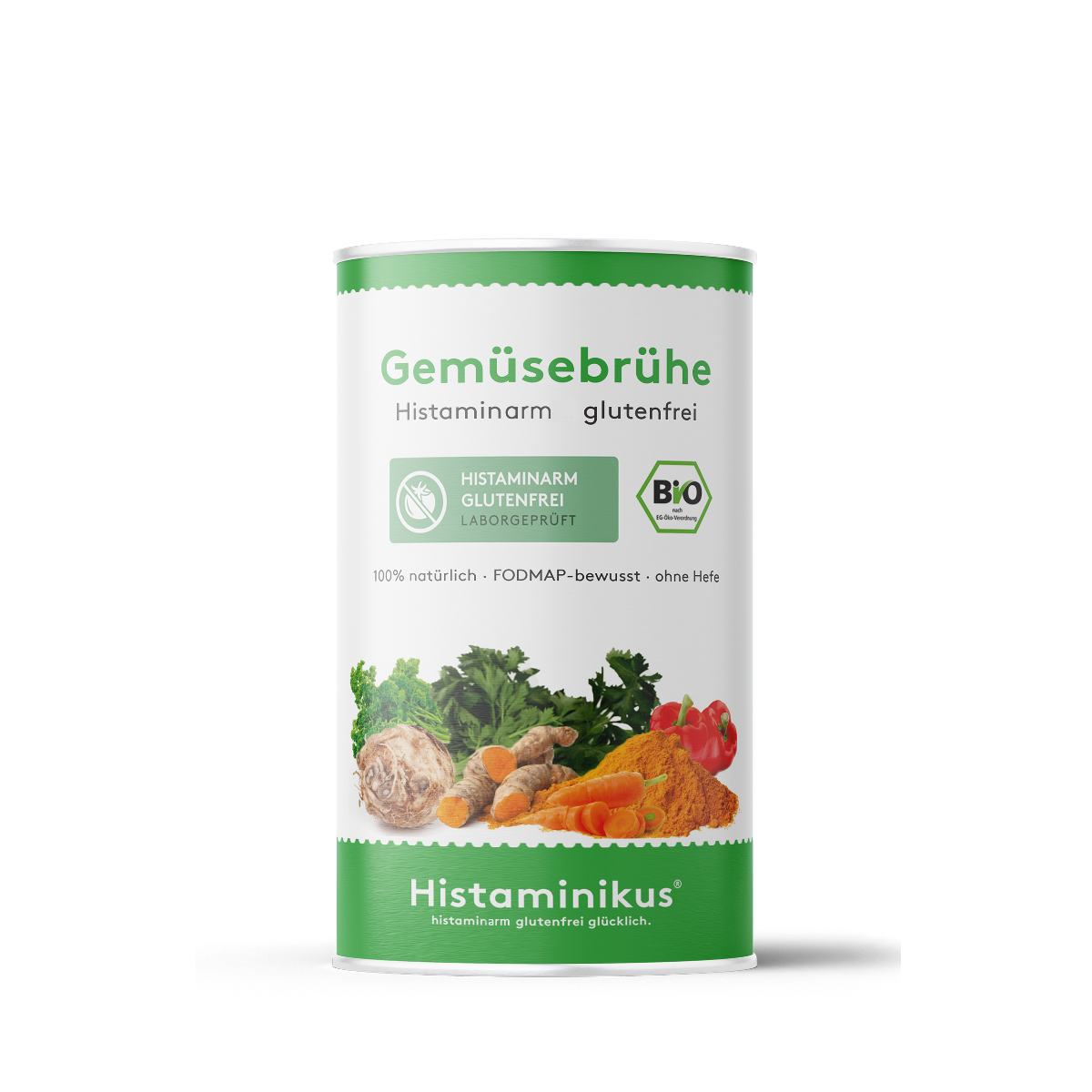
Histaminikus
Vegetable broth
4.63 / 5.0
(243) 243 total reviews
Share
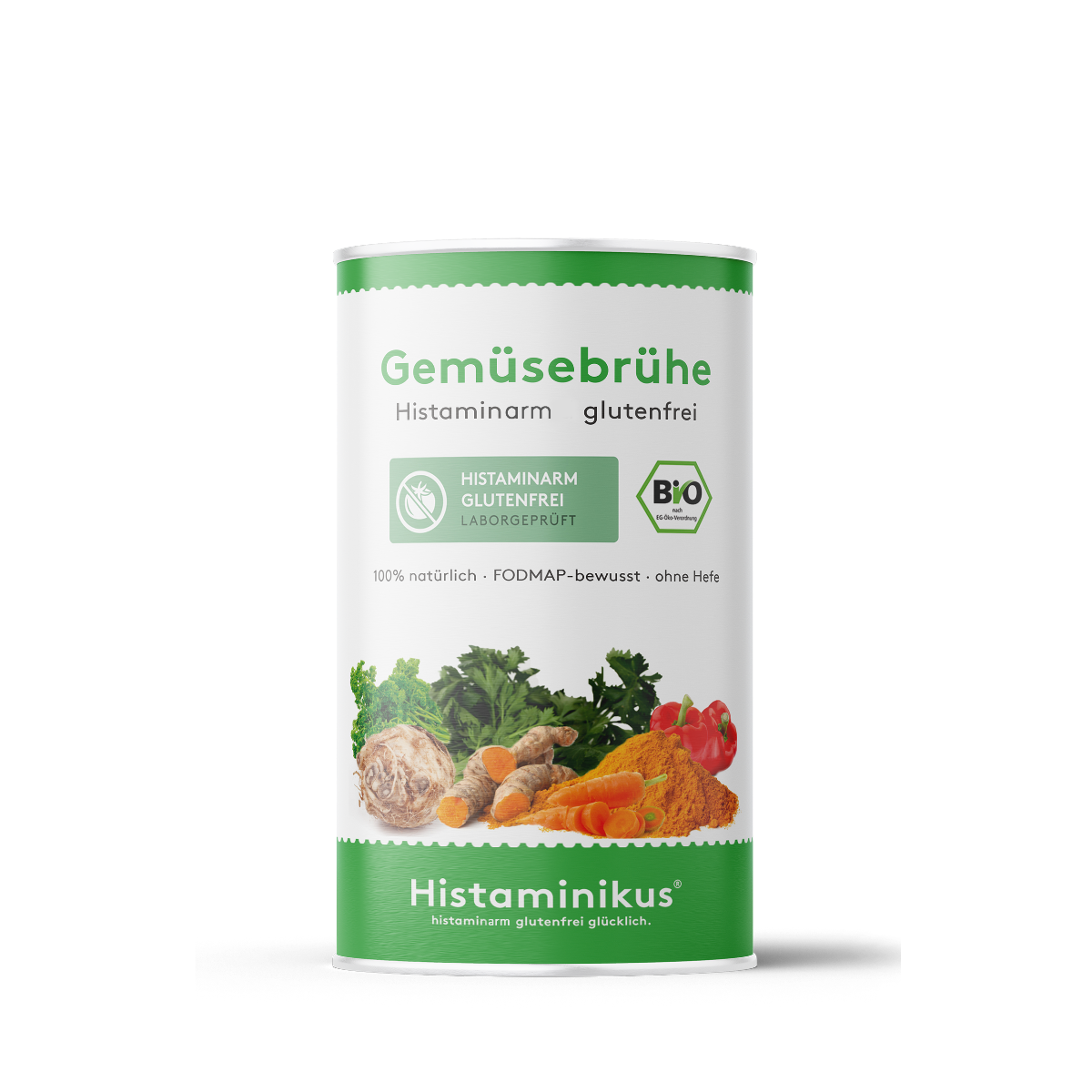
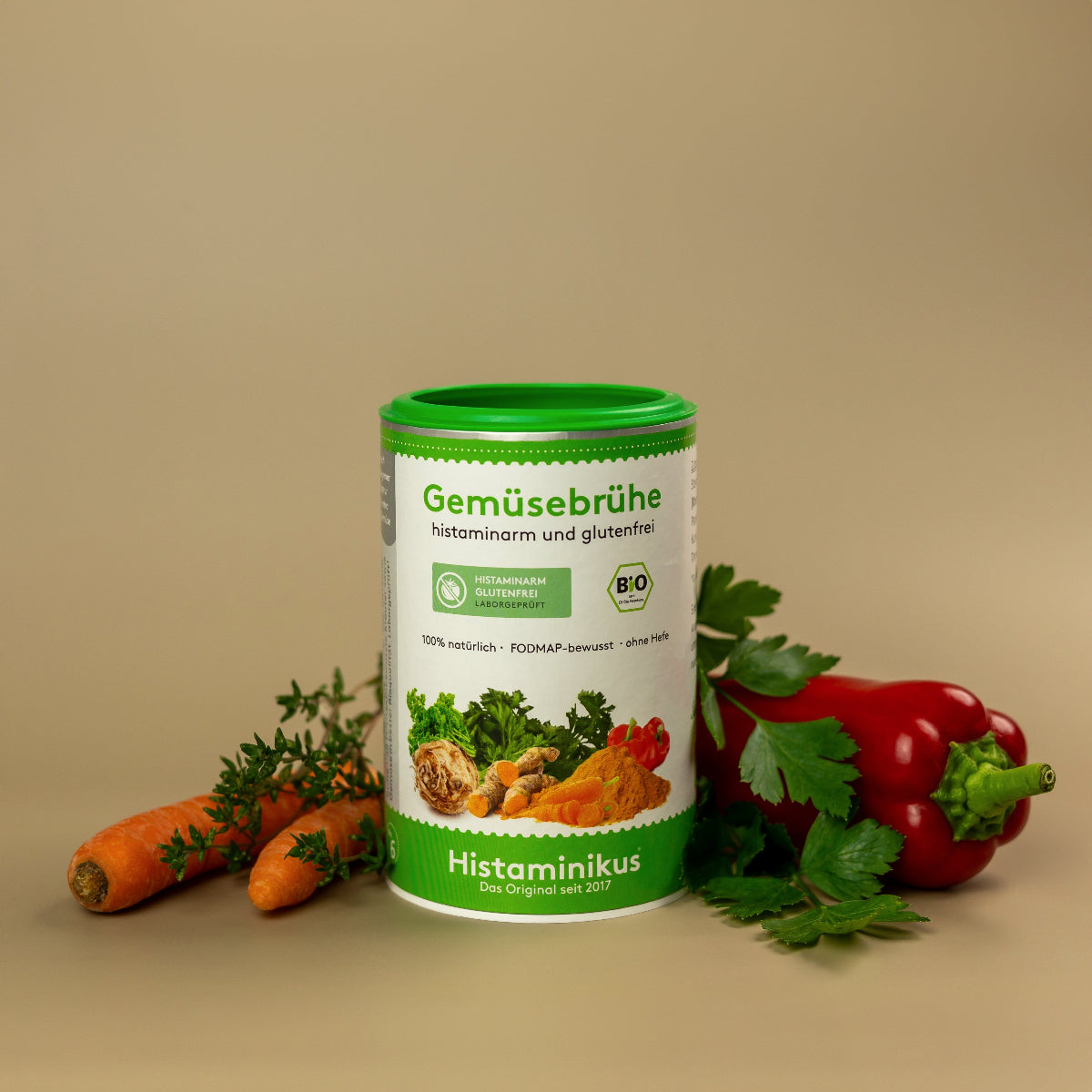
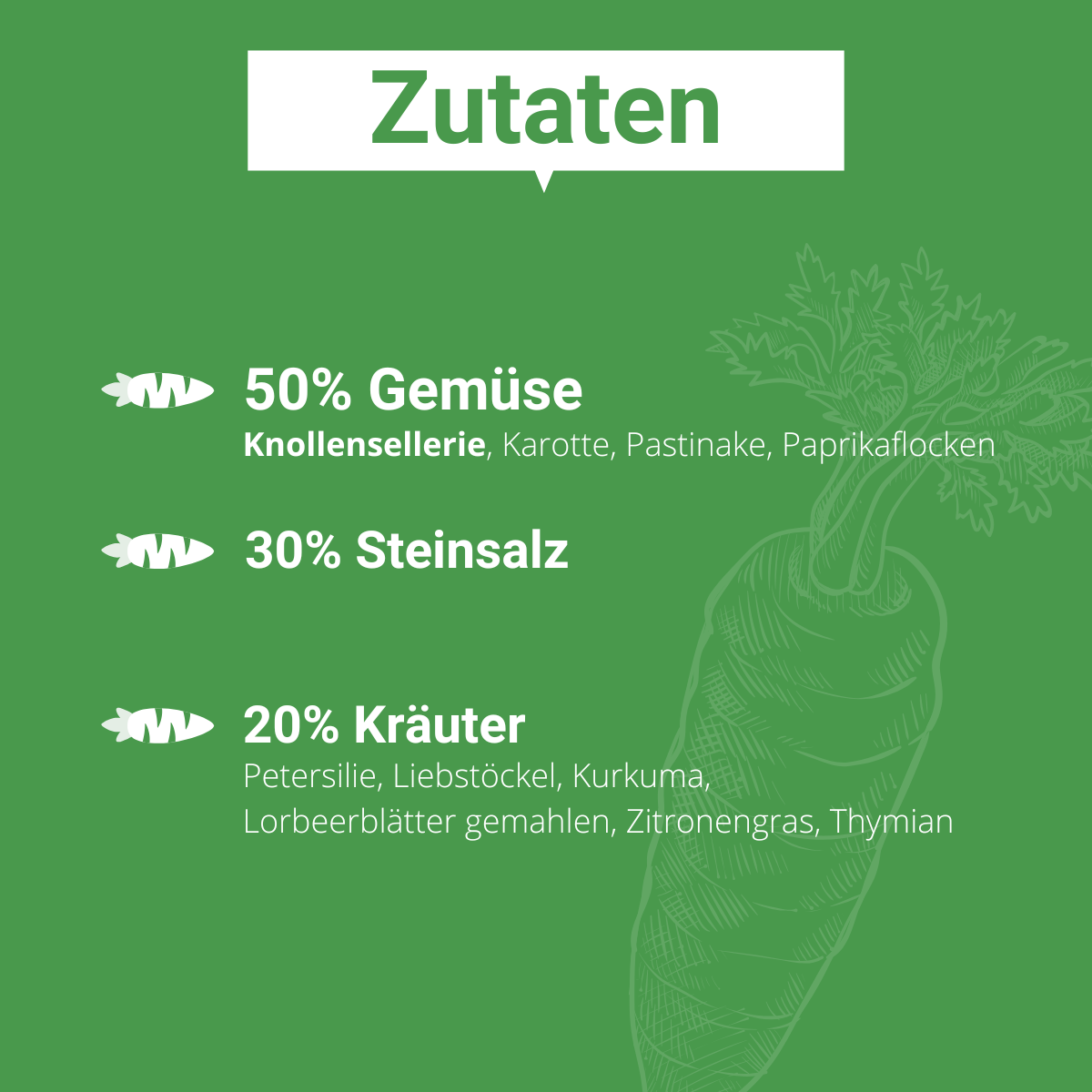
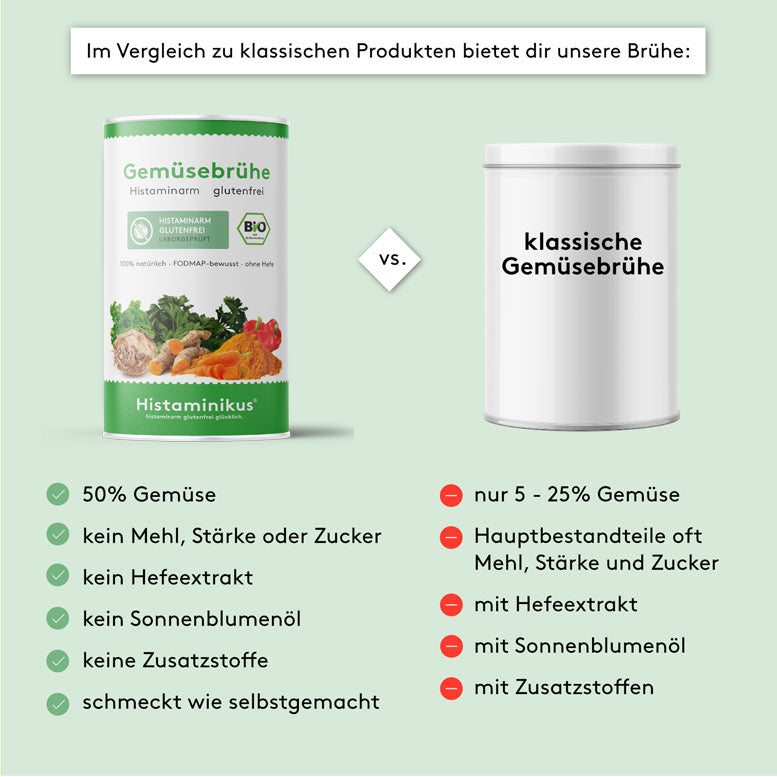
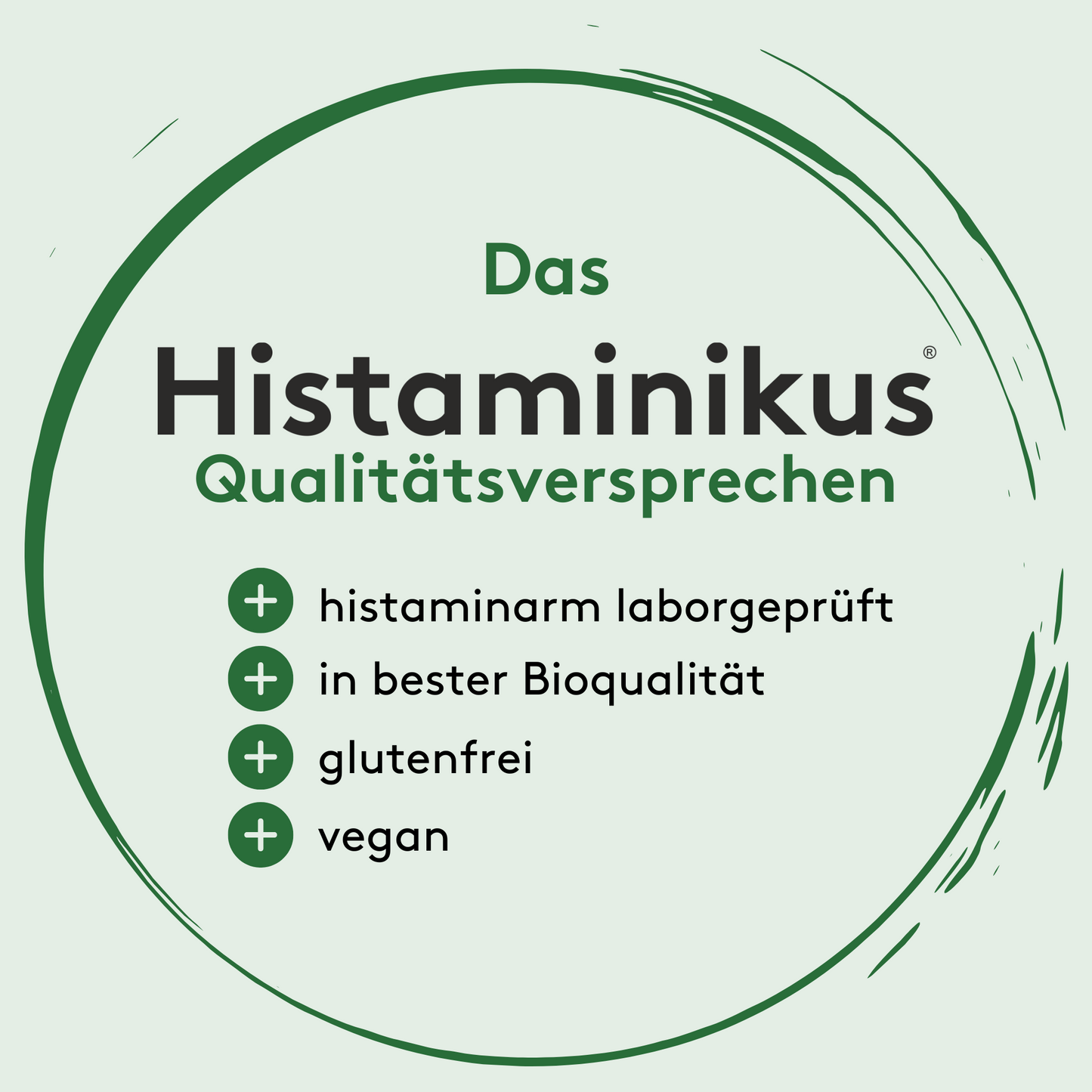
Tip 5: Create relaxed cooking and eating situations
There are these days when there is nothing going on despite good planning as it should. Ideally, you have something in freezer for exactly these days, which you can quickly conjure up, but it is not the case, then the following tips may help:
If you do not live alone in your apartment or house, then make you aware that there are helping hands: Let your partners, your children, your shared apartments help. Not only is it faster, it is also much more fun to cook for two!
If you do not have this luxury, then use dishes that always go and whose ingredients you usually have in the house anyway: for example a topped bread, a baked potato with dip, pasta in some melted butter with salt and herbs-or simply the good old fries that you quickly get out of the frozen counter in the supermarket or from the snack bar next door.
If you have cooked in stress or sit down at the dining table for other reasons, only make sure that you come back into a state of relaxation before you start eating. Stop for a moment, breathe deeply and only start eating when you feel calm and can feel your own normal heartbeat.
A small ritual may also help you to get into the right, relaxed atmosphere while eating: talk to your partner, children or your roommate for a few more minutes. Or close your eyes and thank you for being allowed to eat this delicious, self -prepared meal; Remember what has to be done so that you can now eat this vegetable or meat. Only then start eating and eat every bit with pleasure.
Also important for a relaxed eating situation: Switch off all distractions! The cell phone, a running television, a book or the newspaper have no place when eating. Better concentrate on the really essential things: the taste of your food and society you are in. Enjoy the moment, because it won't come back in this form!
About Yvonne Brinkmann
Yvonne Brinkmann is a prospective dietician and had been affected by intolerances and intolerances for years. On your website www.wirsindkostbar.de And in your podcast "Precious - valuable nutrition despite restrictions" Share her knowledge and tips for a relaxed everyday life full of lightness!
Would you like more tips on the subject of intolerances and intolerances? Then have a look at www.wirsindkostbar.de!
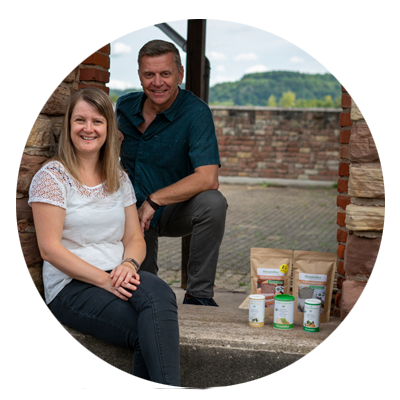
From those affected for those affected
We are Thomas and Michaela Zinser, founder of Histaminikus.
Because of the own histamine intolerance of Michaela and our son, we founded Histaminikus. The frustration does not find any suitable histamine food has spurred us to develop low -histamine food.
We would like to give you back a piece of quality of life. Feel free to look around with us.
Kind regards
Thomas and Michaela
